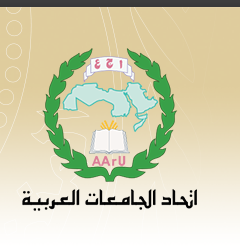Arab Journal of Administration المجلة العربية للإدارة
Abstract
Various financial instruments play a key role in both local and global economics. This led the International Accounting Standards Board - in collaboration with the Canadian Institute for public Accountants - propose a set of accounting standards to regulate the operation of financial instruments. This study revolves around several aspects outlined by said standards, particularly those pertaining to recognition and measurement of financial instruments, as outlined by the International Accounting Standard 39 (IAS 39). The study sought to evaluate the extent to which commercial banks in Jordan comply with the IAS 39 and the challenges and obstacles that may be preventing them from doing so. To that end, a survey was conducted on a study population comprising of investment and accounting managers in Jordanian commercial banks whose stocks are traded on the Jordanian Stock Market, which total 13 banks. The study employed descriptive research and statistical analysis methodologies, including desk and field research to acquire data through the survey, which constituted the primary data source. A total of 26 questionnaires were distributed at two per bank and a total of 24 questionnaires were returned, 2 of which were disqualified due to unsuitability for statistical analysis. A total of 24 questionnaires were deemed suitable for analysis, which constitutes 92% of the study population. With regards to the initial primary hypothesis and its three secondary hypotheses, the scale distribution showed good compliance to IAS 39. The average mean for recognition of financial instruments was 3.81; the average mean for compliance with derecognition of financial instruments was 3.59; and the average mean for total compliance with measurement of financial instruments was 3.89. These means are statistically significanthad at the level of 0.05 and are considered high. As for the second primary hypothesis, it was concluded that the primary obstacles for inadequate compliance with IAS 39 is due to weaknesses in training and the general technical incompetency of accountants, coupled with general weaknesses in the guidelines relating to application and the overall lack of an active market for financial securities. The obstacles with the weakest effects were the moderate control role of the Central Bank as per the application of the standard, the absence of preliminary evaluations for investments, weaknesses on behalf of the external auditor as well as interventions by the management. The study recommends increased training of accounts and other members of the financial cadres associated with the field, in addition to the organization of regular training workshops to build capacities in this regard and ensure compliance with international standards. Additionally, the study recommends that the managements of financial institutions should make available a slew of adequate references and search engines to serve in this regard.
Recommended Citation
Irshaidat, Marwan Said Dr
(2014)
"The Extent to Which Commercial Banks in Jordan Comply with IAS “39” Financial Instruments: “Recognition and Measurement”An Applied Research,"
Arab Journal of Administration المجلة العربية للإدارة: Vol. 34
:
No.
1
, Article 1.
Available at:
https://digitalcommons.aaru.edu.jo/aja/vol34/iss1/1

